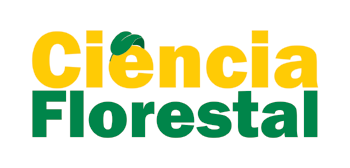Abstract
The study of biosphere-atmosphere interactions allows to describe and characterize the main processes of energy and mass transfer related to the particularities of the vegetation. Thus, interactions occurring in a forest can suffer significant impacts due to climate change and changes in land use. That way, the objective of this research was to identify the importance of the degradation of Tijuca forest in the variability of meteorological elements. For this purpose, measurements were made in preserved (-22°95’S, -43°27’W, 445 m) and degraded (-22°95’S, -43°27’W, 445 m) forest area in Tijuca National Park, located in the city of Rio de Janeiro-RJ state. Two automatic meteorological stations were used, and the data collection was from 18th July to 8th September, in 2017, with 30-minute measurement intervals with measurement of the variability of the air temperature the air, relative humidity of the air and precipitation. The data was submitted to the Pearson correlation coefficient, and the test hypotheses t, F and Kolmogorov-Smirnov. The results showed average temperature differences greater than 1°C for the degraded area with a daily range greater than 7°C. The mean relative humidity difference was close to 10%, being lower in the degraded forest. However, in some daily periods, the relative humidity was 30% smaller in the degraded area. The precipitation showed a difference of close to 10% among the areas. The hypothesis tests applied show statistically significant differences showing that there is a significant effect on the meteorological elements analyzed with forest degradation. The degradation of the Tijuca forest contributes to the modification of the local microclimate due to the increase of the air temperature and the relative air humidity reduction.
Keywords:
Air temperature; Relative humidity; Tijuca forest

 Thumbnail
Thumbnail
 Thumbnail
Thumbnail
 Fonte: Authors (2019).
Fonte: Authors (2019).
 Fonte: Authors (2019).
Fonte: Authors (2019).